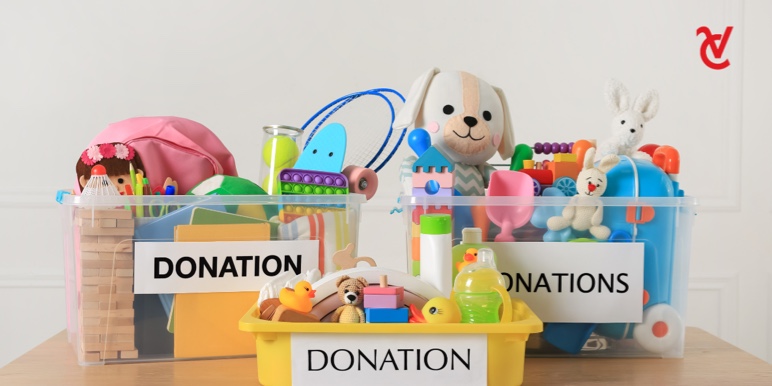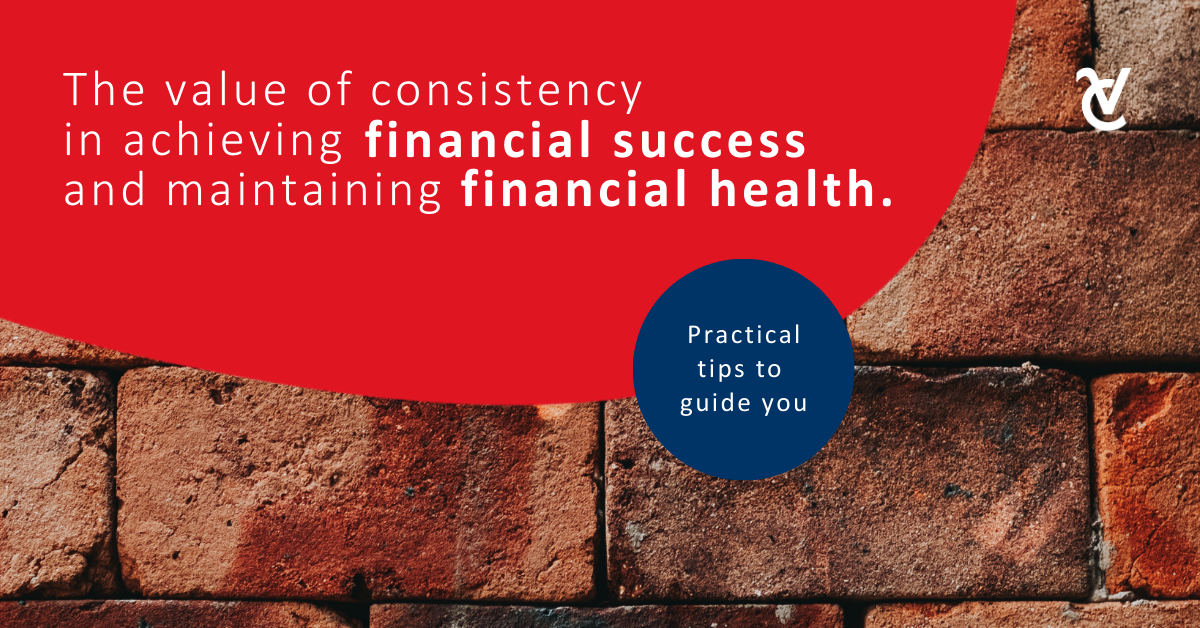19 June 2023 | 15 - 20 read
How to raise money-savvy kids

As parents and guardians, we can shape our children's financial future from an early age. By instilling a solid foundation of money management skills - understanding the value of money, saving, investing and making smart financial decisions - we can set them on a path to success. Imagine if the next generation is equipped to make fewer mistakes, have less debt, and thrive much earlier!
Let's face it, though: finance isn't the most exciting topic for kids. So, how can we, as responsible adults, ignite their interest in money matters and empower them to become financially savvy grown-ups?
Here are 5 valuable tips to help you raise money-savvy kids. Some tips will be great for the under 5's, while a few other ideas will work well with older kids.
-
Start early: Lay the building blocks
Believe it or not, it's never too early to teach your little ones about money.
Introduce simple concepts like counting and recognising coins. Make learning about money fun by using play money or setting up a pretend store at home. Teach them the value of saving and spending wisely by providing clear jars labelled "savings" and "spending" where they can allocate their "earnings." Even these small steps will help establish a strong financial foundation.
Example: Next time you go shopping together, involve your child by letting them hand over the money to the cashier and receive the change. Explain how money is exchanged for the items you're purchasing. As your children get older, gradually introduce more complex ideas like how credit cards work, what it means to earn interest and the difference between wants and needs.

-
Learning through play: Make financial education fun
It's no secret that kids learn best when they're having fun. Turn financial education into an exciting game by playing board games like Monopoly or free online financial literacy games. Use toys or picture books to explain basic financial concepts such as earning, saving, and spending. Through play, your child will develop a positive association with money and learn valuable lessons along the way.
Example: Create a pretend store at home where your child can use play money to "buy" their favourite toys or snacks. Encourage them to count and exchange money, teaching them about basic transactions and the concept of value. You could even consider setting up a "family economy" system where your kids can earn tokens or fake money for doing chores or achieving specific goals, which they can trade for rewards.
-
Lead by example: Be a financial role model
Children learn by observing and imitating their parents. Set a positive example by demonstrating responsible financial habits. Involve your child in everyday financial activities like budgeting, shopping, and saving. Explain your decisions and thought processes so they understand the reasoning behind them. By witnessing your responsible financial behaviour, they'll develop similar habits and attitudes towards money.
Example: When you receive your monthly bills, take a moment to explain to your child what they are and how you plan and allocate money to pay for them. Emphasise the importance of budgeting and meeting financial obligations.
-
Teach the power of saving and setting goals
Help your child understand the value of saving and setting goals. Introduce them to the idea of a piggy bank or a savings jar where they can deposit a portion of their money. Encourage them to set small savings goals, such as buying a toy or going on a special outing. This will teach them patience, delayed gratification, and the joy of achieving their goals through saving.

Example: Set up a savings jar specifically for a fun family outing. Whenever your child receives money as a gift or for doing chores, let them choose whether to save some or spend it immediately. As the savings jar fills up, they'll learn the rewards of saving for something special.
-
Make it tangible: Introduce the concept of sharing and giving
Teach your child the importance of sharing and giving back to others. Explain the idea of donating money or toys to those in need. Involve them in charitable activities such as participating in a toy drive or supporting a local community initiative. By instilling a sense of generosity early on, you'll nurture empathy and gratitude in your child.
Example: Help your child pick out a toy they no longer play with and explain how donating it can bring joy to another child. Take them with you when dropping off the donation, allowing them to experience the act of giving firsthand.

Tips for older children
Practical lessons: Real money, real decisions
Of course, the best way for kids to learn about money is to have some of their own to manage. If you're comfortable doing so, consider giving your child an allowance. But don't just hand over the money and let them spend it on whatever they want. Instead, help them come up with a simple budget that divides their allowance into cash for spending, saving, and giving. This will teach them to think critically about their financial choices and understand the consequences of their decisions.
For example: let's say you give your child a weekly allowance of R50. Together, you can decide that they will allocate R30 for spending on small treats or toys, R10 for saving towards a bigger purchase or goal, and R10 for giving to a cause or charity they care about. This way, they learn to prioritise their spending, practice delayed gratification, and develop a sense of empathy by giving back to their community.
By involving your child in budgeting, you're fostering their financial decision-making skills from an early age. They'll learn to evaluate their wants versus needs, set goals, and understand the value of money. As they experience the outcomes of their choices, whether saving up for a special toy or making a difference through giving, they'll gain a deeper appreciation for the power of managing their finances.
Saving and the magic of interest
One of the most valuable financial lessons you can teach your child is the power of compound interest. Start by explaining the concept in simple terms, then help them see it in action. You might open a savings account in their name and encourage them to make regular deposits. Or, for older kids, you could explore investment options like stocks or mutual funds. Show them how, over time, their money can grow and even start earning money of its own.
Imagine your child saves R1 000 in a savings account with an annual interest rate of 5%. At the end of the first year, they would earn R50 in interest (R1 000 x 0.05). Instead of withdrawing the interest, encourage them to leave it in the account so it can be added to the initial amount. In the second year, they would earn interest not only on the initial R1 000 but also on the R50 earned in the previous year, resulting in a total balance of R1 050.

As the years go by, the power of compounding becomes even more evident. Let's fast forward 5 years. At the end of the 5th year, their account balance would grow to approximately R1 276, thanks to the accumulation of interest on interest. The longer they keep their money invested, the more significant the impact of compound interest becomes.
An introduction to banking
Once your child is in their teens, it's time to introduce them to the banking world. Take them to the bank and help them open a savings account. Teach them how to use their banking App, understand their statement, and deposit and withdraw money at an ATM. Ensure they understand the importance of keeping their financial information safe online and offline.
Navigating digital finance
Speaking of online banking, it's more important than ever for kids to understand how to manage money in a digital world. Teach them about online shopping, the importance of privacy and security, and avoiding online scams. Discuss the benefits and drawbacks of different payment methods, like credit cards, debit cards, and digital currencies. It's also crucial to cover the reality of in-App purchases and online subscriptions, which can add up quickly if not monitored.
Understanding credit
Credit can be a powerful financial tool but can also lead to significant problems if not used responsibly. So, don't wait until your child heads to college to talk about credit. Start by explaining what credit is and how it works. Discuss the importance of paying off the balance in full each month to avoid costly interest charges. And don't shy away from discussing the potential pitfalls of credit misuse, such as debt, bad credit ratings, and the potential for bankruptcy.
The impact of entrepreneurship
Encouraging your child to start their own small business can be a fun and practical way to teach financial literacy. Whether creating and selling handmade crafts, gardening, car wash or dog walking services in the neighbourhood or running a digital tutoring service, entrepreneurship provides valuable lessons in financial management.
For example, your child could set up an online store selling homemade jewellery or artwork. They would learn about pricing their products to cover costs and make a profit, understanding the demand for their creations, and marketing their store to attract customers. They would also grasp the concept of supply and demand as they adjust their inventory based on customer preferences.
By engaging in entrepreneurial activities, children learn firsthand about profit and loss, budgeting, customer service, and the value of hard work. They cultivate essential skills such as problem-solving, creativity, and resilience. Moreover, the experience of running a business at a young age can ignite their passion for entrepreneurship and provide a solid foundation for their financial future.
The lifelong gift of financial literacy
Raising financially savvy kids might seem like a daunting task, but remember that you're not alone. Numerous resources are available to help you, from books and online courses to our very own Velocity Club money experts.
Keep the conversations with your kids about money open, honest, and frequent. Be patient, and remember that financial education is a marathon, not a sprint. It might take time, but these efforts will equip your children with a financial skill set to benefit them for the rest of their lives. More than any material possessions, giving them the knowledge to manage their money wisely is one of the greatest gifts you can give.
And if you'd like personal financial planning support, book a FREE session with Velocity Club - our team can help keep you on track, even when life is busy!

05 May 2023 | 12 - 15 read
5 Tips to maximise your tax savings

12 April 2023 | 12 - 15 read
5 Insider strategies for building your investment portfolio

15 March 2023 | 12 - 15 read
The power of consistency in achieving financial success

SIGN ME UP
Start making the right money moves today
Put your goals within reach. Leave your details and a Relationship Consultant will call you back.
